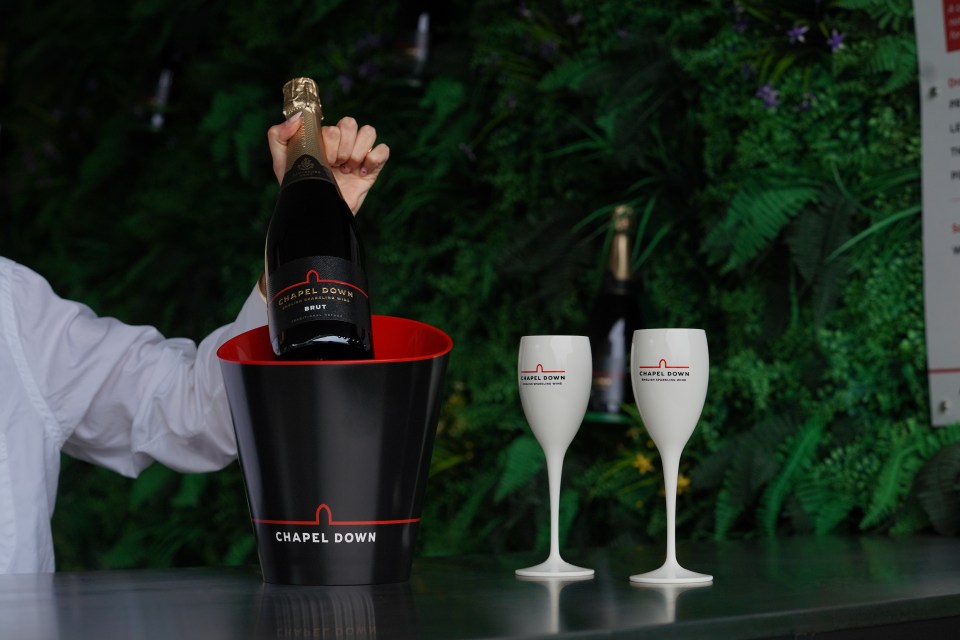Chapel Down: Meet the man bringing a bit of Bazball to English bubbles

“I love the approach. They’re challengers,” Andrew Carter tells me, as we discuss England’s Test cricket side from the Chapel Down terrace a couple of hours prior to the Fifth Test at the Oval.
Captain Ben Stokes has certainly rejuvenated England’s first XI, and in his own way changed the entire sport of five-day cricket with a bit of derring-do.
“That’s what we do, too, really.”
Much like England’s cricketers this summer, who defied scepticism that their particular brand of play would work against the might of Australia, the growing sparkling wine industry has certainly proved people wrong in recent years. Chapel Down has led the way; it’s the largest, and most profitable, in the market, and right now produces around 1.5m bottles a year with a plan to double that by 2026. All that in a part of the world that until twenty years ago was regarded as – at best – a backwater of the global wine industry.
Carter clearly takes pride in not just Chapel Down’s success but that of the wider English wine industry, centred today in Kent, Sussex and Surrey.
Having been managing director of Chase Distillery, sold to Diageo in 2021, it was the challenge of building the industry – and its market leader – that appealed to the likable, Buckinghamshire-born drinks veteran.
“I really wanted a big, drinks legacy project. And creating a wine region in the south east of England is as big as it gets. In our respective lifetimes, we’ll have the best part of 100,000 acres of vineyards. We’ll be the next big global wine region,” he tells me.
The story of English sparkling is now, to a certain degree, well-known. Parts of the south east have the same soil – the chalky terroir – as the champagne region of France, and climate change has created the right weather conditions for vine growth. English winemakers such as Nyetimber, Gusborne and Rathfinny have all come to prominence; and quality-wise, the proof is in the taste. Chapel Down, rather mischievously, held a blind tasting in Reims – the heart of the Champagne region – earlier this summer, in which their ‘Chapelle Du Bas’ came out ahead of a well-known French house.


“Let’s remember the English invented champagne,” Carter tells me with a chuckle, as cricket fans gradually filter into the south London ground. He’s not wrong; scientists reckon Brits were adding sparkle to their aperitifs some 30 years before a monk by the name of Dom Perignon claimed the innovation for himself. But that hasn’t stopped some critics still piling on English wine. One recent article in The Spectator slammed it as overpriced and inferior.
“If I’m brutally honest, I read that article, and I thought it was very outdated. We’re premium-priced but we’re still at about a 20 per cent discount to French champagne,” Carter says. Waitrose offers a bottle of Chapel Down’s classic brut for the princely sum of £26.99 – Moet Chandon sits above the £40 mark. And whilst the taste profile differs a tad, Chapel Down’s crispness is at least more to your correspondent’s taste than its more famous French cousin.
And anyway, Carter says, “we could practically sell twice what we make. That’s the reality of the strength of the brand that we have.”
ALL ABOUT THE BRAND
Carter is a self-confessed brands man. He’s been behind relationships with the English Cricket Board, the Boat Race, and Ascot. Chapel Down signed a three-year extension with the Berkshire racecourse on Friday of last week, with the horse-racing fan and CEO in attendance.
“Awareness has gone from about 28 to 37 per cent of the population in the past year, and these sponsorships are part of that. It’s about putting the brand in front of as many English sparkling wine producers as possible. And it’s then about translating that awareness into penetration,” he says.
“We’ve got 14 per cent of English sparkling wine drinkers drinking Chapel Down. Compared to a Moet, with awareness of 80 per cent and penetration of 20 per cent, so there’s a long pathway ahead to keep building brand awareness.”
That long pathway also looks a lot like an opportunity. Chapel Down has just received planning permission for a new winery near Canterbury, and wine tourism is on the up, too – some 60,000 people a year visit Tenterden, the brand’s original vineyard and winery complete with a well-regarded restaurant.
Looking ahead in a business that takes four years from vine-to-bottle – at least – requires investment. “I picked up a level of investment,” he says, when he took the job, with investors including Lord Michael Spencer. Expansion will require more – with the balance being a desire to maximise profitability in the near-term, with a plan to grow in the long-term.
Either way, the industry and Chapel Down is certainly growing up. “We’re in our teenage years,” reckons Carter.
“And when you’re in your teenage years you can experiment. When you’re in Champagne, established for three centuries, there are so many rules and regulations. It’s nice to have that flexibility,” he says.
With that, we wrap up, and look forward to watching the other English rule-breakers – this time on the field. Chapel Down looks set for similar success.